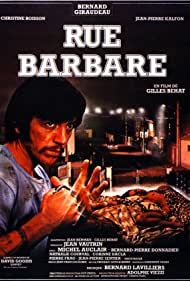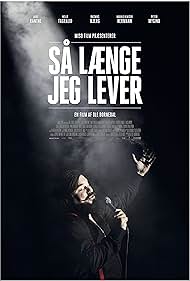City on the River Banda sonora (2020)

Compre na Amazon Reproduzir e baixar trilhas sonoras
Pilsata pi upis
City on the River
The Sign Painter
The Sign Painter
The Sign Painter
The Sign Painter
Sinopse
City on the River
The Sign Painter is a tragicomedy about a young Latvian man (ANSIS) with simple dreams: to marry the free-spirited and beautiful daughter (ZISLA) of a local Jewish merchant and to pursue a career as an artist whilst supporting himself as a sign painter. But his dreams are repeatedly swept away in the tumultuous tides of serial totalitarian occupation of his home.
He becomes the lens through which we perceive the relentless and increasingly absurd march of this brief but momentous period in history from a Latvian dictatorship to Soviet occupation to Nazi conquest to the ultimate Soviet return. Ansis struggles to remain neutral and unobtrusive with each new regime, but it is difficult to resist the shifting, opposing forces of resistance and conformity and somehow remain true to himself.
Similarly, Ansis tries not to be dissuaded by Zisla's fascination with communist ideals, nor by her father's forbidding of their union. But as these pressures mount, a young Latvian beauty (NAIGA) arrives on the scene and offers a less complicated path toward a seemingly more predictable future.
But soon, Zisla disappears - perhaps to join the communists - and Ansis and Naiga marry. Almost immediately, though, their relationship is put under greater pressure with the Soviet occupation and the shocking arrival of Zisla, now a communist official. Under this brutal regime, huge numbers of their friends and neighbors are sent to almost certain death in Siberia. Meanwhile, Naiga's father is tortured and killed by the Soviets, and Naiga can't help blaming Zisla for his death.
When the tides shift again and the Soviets are ousted by the Nazis. Now it is the Jewish people who are targeted, along with the communists, and Ansis finds himself in the darkly absurd position of painting a new sign declaring the region 'Free of Jews.' In this climate, Zisla finds herself on the run, and Ansis insists on hiding her in their attic, against Naiga's strenuous objections, further stressing this deeply fraught relationship.
Once again Ansis finds himself in the middle, faced with a choice literally between life and death. As stability crumbles and violence accelerates, Ansis begins to believe that to simply survive may be the only act of heroism that counts.













